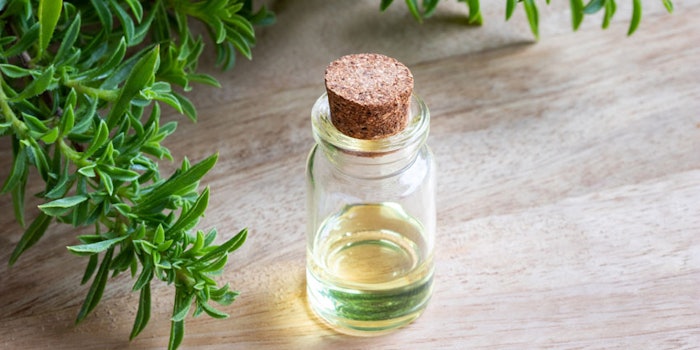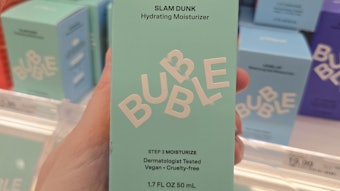
Many antibacterial actives are effective deodorants but can negatively impact skin in the armpit area. L'Oréal inventors have found a natural alternative: Satureja montana extract.
The Premise
It is well-known that many essential oils also have antibacterial activity. It is also known that unpleasant odors due to perspiration are related to the presence of microorganisms; especially Corynebacterium xerosis, which decomposes sweat via enzymatic reactions that produces malodorous compounds. As such, deodorants are designed to reduce or prevent bacteria from forming these unpleasant odors.
See related Patent Pick: Silencing Sweat
Various antibacterial substances can destroy resident bacterial flora to reduce odor. The most commonly used is triclosan. There are also substances that reduce bacterial growth. These include transition metal-chelating agents such as ethylenediaminetetraacetic acid (EDTA) or diethylenetriaminepentaacetic acid (DTPA).
However, according to L'Oréal inventors, treatments such as these applied to the armpit area can bring about detrimental changes to skin. There is thus a need to find novel deodorant actives that are both effective and safer. This was the focus of the present patent.
The Literature
Geraniol-rich essential oil of Satureja montana as a deodorant active agent
European Patent EP2988827
Publication date: Jan. 30, 2019
Assignee: L'Oréal
This invention relates to the use of a Satureja montana (winter savory) extract, comprising more than 60% w/w of geraniol and more than 5% w/w of trans-β-caryophyllene, as a deodorant active; more specifically disclosed is Satureja montana L. ssp. variegata (or Satureja Montana var. citrodoria oil). To treat human body odors, particularly in the armpit and foot areas, said Satureja montana essential oil is applied for both its odor and pharmacological cosmetic activity.
The inventors note sariette essential oils including Satureja montana have previously been identified for antibacterial activity against Gram-positive bacteria, including those responsible for unpleasant body odors. However, extracts comprising from 10% to18% of para-cymene; from 0.2% to 2% limonene; from 8% to 18% of γ-terpinene; from 22% to 30% of carvacrol; from 12% to 20% of thymol; and from 2% to 4% of β-caryophyllene produce an unpleasant smell, unacceptable for consumer use.
The present work thus aimed to optimize an extract to impart good antibacterial activity against Corynebacterium xerosis without the malodor drawback. The disclosed Satureja montana extract meets these requirements.
Patent accessed on Jan. 30, 2019.









